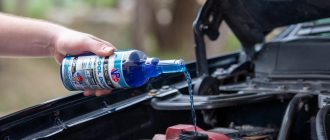## How CNG Can Damage Car Engines
Compressed Natural Gas (CNG) is a fossil fuel that is gaining popularity as an alternative to gasoline and diesel. It is made up of mostly methane, and is typically stored in a tank at high pressure. CNG is often considered to be a cleaner and more environmentally friendly fuel than gasoline or diesel, as it produces fewer emissions. However, there is some debate over whether or not CNG can damage car engines.
Potential Benefits of CNG
There are several potential benefits to using CNG as a fuel for cars. These include:
* **Lower emissions:** CNG produces fewer emissions than gasoline or diesel, which can help to improve air quality.
* **Lower fuel costs:** CNG is typically less expensive than gasoline or diesel, which can save drivers money on fuel costs.
* **Increased fuel efficiency:** CNG engines can be more fuel-efficient than gasoline or diesel engines, which can help to reduce fuel consumption.
Potential Risks of CNG
There are also some potential risks associated with using CNG as a fuel for cars. These include:
* **Reduced engine power:** CNG engines can produce less power than gasoline or diesel engines, which can make them less responsive and less powerful.
* **Increased engine wear:** CNG can cause increased engine wear, as it is a dry fuel that does not lubricate the engine as well as gasoline or diesel.
* **Fire and explosion risks:** CNG is a flammable gas, and can pose a fire or explosion risk if it is not handled properly.
Can CNG Damage Car Engines?
The short answer to the question of whether or not CNG can damage car engines is yes. CNG can cause increased engine wear, and can also lead to fire or explosion risks. However, the risk of damage is relatively low if the CNG system is properly installed and maintained.
How to Reduce the Risk of CNG Damage
There are several things that can be done to reduce the risk of CNG damage to car engines. These include:
* **Having the CNG system installed and maintained by a qualified technician.** A qualified technician will be able to ensure that the system is installed and maintained correctly, which will help to reduce the risk of leaks and other problems.
* **Using high-quality CNG fuel.** High-quality CNG fuel will contain less impurities, which can help to reduce engine wear.
* **Avoiding overfilling the CNG tank.** Overfilling the CNG tank can increase the risk of leaks and explosions.
* **Storing the CNG vehicle in a well-ventilated area.** CNG is a flammable gas, so it is important to store the vehicle in a well-ventilated area to reduce the risk of fire or explosion.
Conclusion
CNG is a potential alternative fuel for cars that has several benefits, including lower emissions and lower fuel costs. However, there are also some risks associated with using CNG, including reduced engine power and increased engine wear. By taking steps to reduce the risk of damage, drivers can safely use CNG to fuel their cars.





